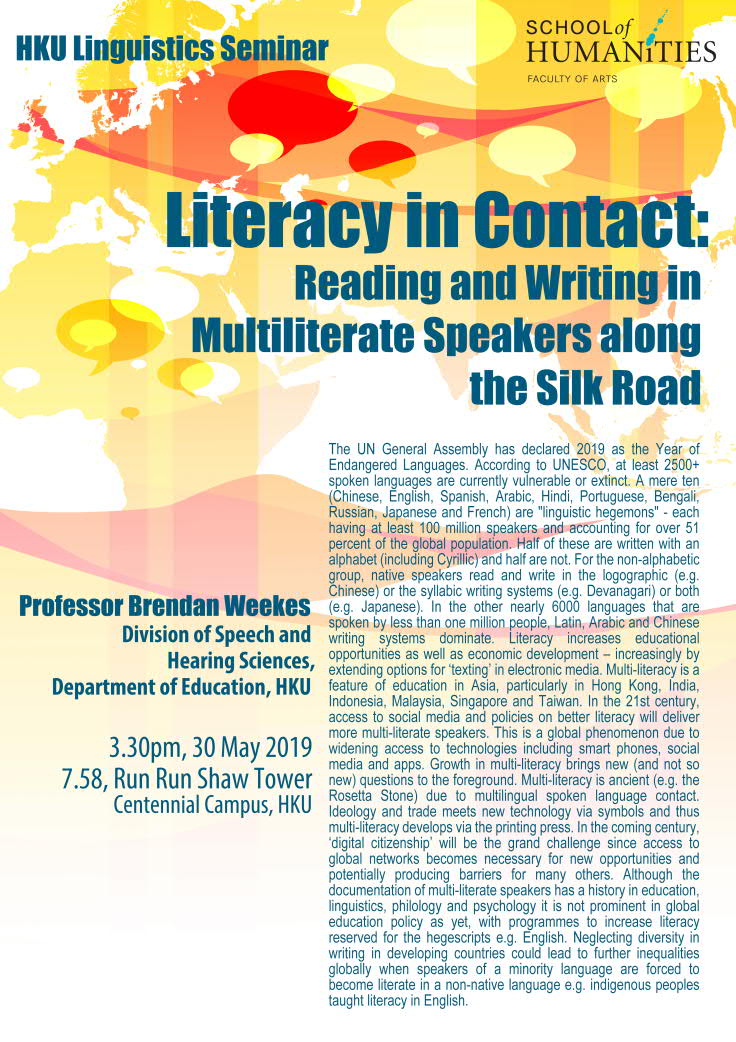

Literacy in Contact: Reading and Writing in Multiliterate Speakers along the Silk Road – Brendan Weekes, HKU
May 30, 2019 @ 3:30 pm - 5:00 pm
The UN General Assembly has declared 2019 as the Year of Endangered Languages. According to UNESCO, at least 2500+ spoken languages are currently vulnerable or extinct. A mere ten (Chinese, English, Spanish, Arabic, Hindi, Portuguese, Bengali, Russian, Japanese and French) are “linguistic hegemons” – each having at least 100 million speakers and accounting for over 51 percent of the global population. Half of these are written with an alphabet (including Cyrillic) and half are not. For the non-alphabetic group, native speakers read and write in the logographic (e.g. Chinese) or the syllabic writing systems (e.g. Devanagari) or both (e.g. Japanese). In the other nearly 6000 languages that are spoken by less than one million people, Latin, Arabic and Chinese writing systems dominate. Literacy increases educational opportunities as well as economic development – increasingly by extending options for ‘texting’ in electronic media. Multi-literacy is a feature of education in Asia, particularly in Hong Kong, India, Indonesia, Malaysia, Singapore and Taiwan. In the 21st century, access to social media and policies on better literacy will deliver more multi-literate speakers. This is a global phenomenon due to widening access to technologies including smart phones, social media and apps. Growth in multi-literacy brings new (and not so new) questions to the foreground. Multi-literacy is ancient (e.g. the Rosetta Stone) due to multilingual spoken language contact. Ideology and trade meets new technology via symbols and thus multi-literacy develops via the printing press. In the coming century, ‘digital citizenship’ will be the grand challenge since access to global networks becomes necessary for new opportunities and potentially producing barriers for many others. Although the documentation of multi-literate speakers has a history in education, linguistics, philology and psychology it is not prominent in global education policy as yet, with programmes to increase literacy reserved for the hegescripts e.g. English. Neglecting diversity in writing in developing countries could lead to further inequalities globally when speakers of a minority language are forced to become literate in a non-native language e.g. indigenous peoples taught literacy in English.
